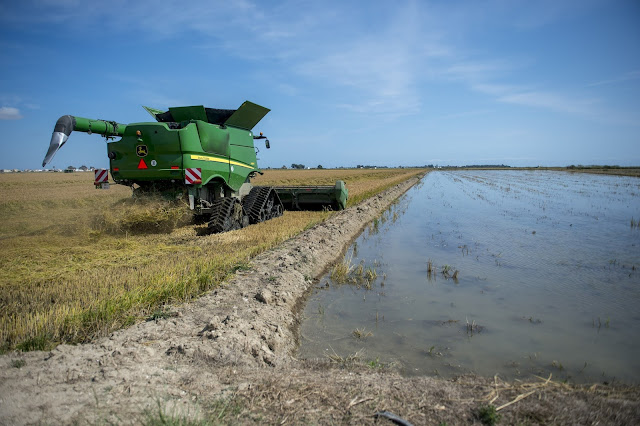Cars Parts Made From Rice Husks? SEAT is Already Researching It
It's the most popular food on the planet, the basis of world-famous dishes and now... its husk can also be part of a car. SEAT--a Spanish car manufacturer owned by the Volkswagen Group--is talking about rice. In an innovative pilot project based on the circular economy and with the goal of reducing its carbon footprint, SEAT is researching the use of Oryzite as a substitute for plastic products.
More than 700 million tons of rice is harvested worldwide every year. Twenty percent of this is rice husks, some 140 million ton, most of which is disposed of. "At the Montsià Rice Chamber, with a production of 60,000 tons of rice a year, SEAT looked for an alternative to take advantage of all the husk that was being burned, some 12,000 tons, and SEAT turned it into Oryzite, a material that can be mixed with other heat-stable thermoplastic compounds and molded," explains Oryzite CEO Iban Ganduxé.
Renewable and sustainable. This new raw material is being tested on trim elements in the SEAT Leon. "At SEAT we're always working on finding new materials to improve our products, and in this sense, rice husks enable us to work on reducing plastics and petroleum-based materials," says Joan Colet, interior trim development engineer at SEAT.
More lightweight, less CO2. The tests consist in modeling some parts of the car, such as the rear hatch, the double load floor of the boot, or the ceiling headliner with rice husks mixed with polyurethanes and polypropylenes. At first glance, they do not differ in any way from those made with conventional technology, but they weigh much less. "The parts are lighter, which means that we reduce the weight of the car, thus reducing our carbon footprint," according to Colet, and he adds that "we're also using a renewable material, promoting the circular economy and making a greener product."
The future is green. Trim elements are currently being analyzed to find out how much husk can be used so that technical and quality requirements are met 100-percent. For example, the double-deck cargo area of the luggage compartment undergoes load tests in which it must withstand up to 100 kilos of weight concentrated in one spot to check its rigidity and strength. Thermal tests are also carried out in the climatic chamber to analyze its resistance to heat, cold, and humidity. "The technical and quality requirements that we demand of each part do not change with respect to what we have today. As long as the prototypes we're making meet these requirements, we'll be closer to introducing them as standard," explains the SEAT engineer.
Innovation with an environmental purpose. SEAT is firmly committed to caring for the environment and to the goals set out in the Paris Agreement. Within the framework of its sustainability strategy and its corporate mission MOVEtoZERØ, the company aims to minimize the environmental impact of all products and mobility solutions throughout their entire life cycle, from raw material procurement and production to end of life. Stefan Ilijevic, Head of Innovation at SEAT, points out that "research is the way to a sustainable future. Only by investing in innovation will we be able to promote new projects and materials that reduce the use of plastics on the planet and contribute to the global care of the environment." With the Oryzite circular economy pilot project, the carmaker is taking another step forward in research into new renewable materials to reduce the use of plastics in its future vehicles and achieve a zero carbon footprint by 2050.
The initiative for the use of Oryzite is one of the projects that will be presented at the second edition of SEAT Innovation Day, to be held on October 28th and 29th. It's an inspirational event focused on identifying and encouraging the innovative spirit among the company's own employees. After the success of the first edition, this year SEAT is implementing a hybrid format that combines both online and on-site activities and sessions.






Comments
Post a Comment